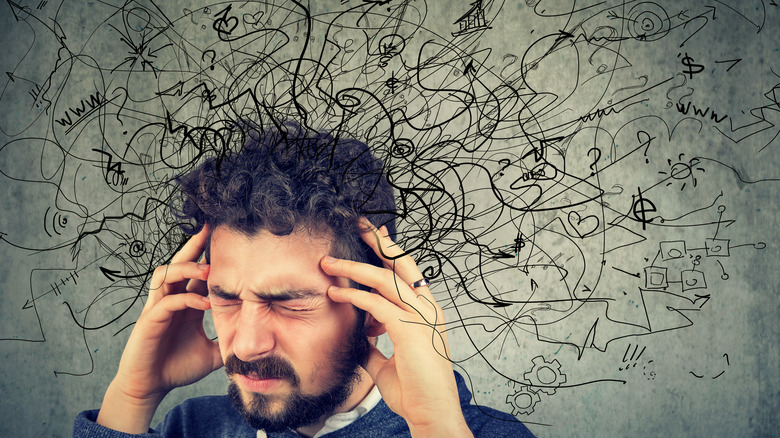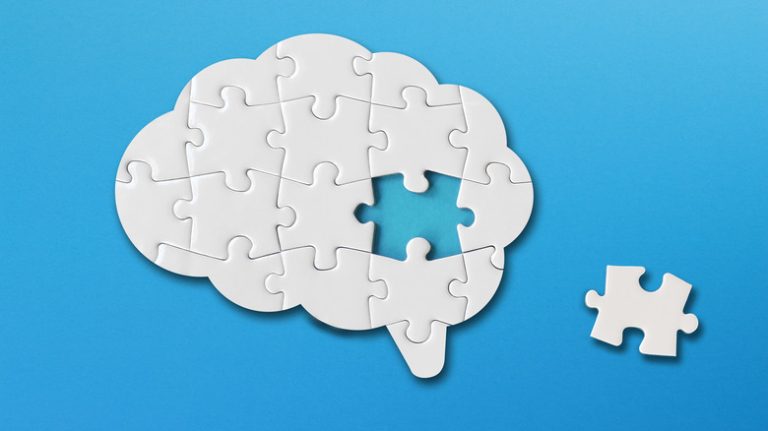The definition of workaholism has been debated since the term was first coined in 1971. Some define it simply as an addiction to work. Others define it more specifically as “high drive, high work involvement, and low work enjoyment.” It’s even disputed whether workaholism is more beneficial or harmful, but there’s no argument that the condition is rampant in the United States, and in many other countries as well.
Surveys have revealed that 48% of employees in the United States consider themselves workaholics, and that millennials – people born between 1981 and 1996 – are the worst for working long hours and skipping vacations (via Society for Human Resource Management (SHRM). There’s even a National Workaholics Day on July 5 to remind us that work isn’t everything and that taking time to nurture ourselves, our relationships, and our outside interests is essential too.
Studies show that workaholism creates stress, and that stress results in one to five hours of lost productivity a week for many employees. Most worrisome of all is that overwork can lead to a variety of health issues, ranging from depression to life-threatening strokes and heart attacks.
Working long hours isn’t necessarily the same as being a workaholic

You might think that you’re a workaholic because you work long hours, but there are other things to consider, according to the Harvard Business Review. They conducted a study of 3,500 Dutch employees to evaluate whether working long hours always corresponded with related health issues, and found that it didn’t.
Instead, their study revealed that the employee’s attitude toward their work, and whether or not they could turn off worrying and thinking about their jobs when they weren’t working, was the key. If you feel guilty if you’re not working all the time and can’t set your work life aside, you can probably claim the title of workaholic and expect some health-related side effects because of your obsessiveness. If you can walk away from work and forget it, thumbs up. You may skate right past the negative ramifications of your long hours.
Other clues that you may be a workaholic (via PositivePsychology.com) include putting work before exercise, personal relationships, eating right, getting enough sleep, and just plain relaxing. Work can also be used as an attempt to avoid feelings like depression or grief, or as a way of coping with a divorce or a death.
Workaholism may keep you from getting the sleep you need for good health

Adults age 18 to 64 typically need seven to nine hours of sleep per day. And what happens if you short yourself on those hours due to workaholism? You may become less alert, and your ability to think and remember things may falter (via the Cleveland Clinic). You might be sleepy during your waking hours, more likely to make mistakes at work, and more likely to have car accidents. Also, if you’re tired, you may be impatient and irritable with coworkers, family, and friends, which can take a toll on your overall quality of life.
If the side effects of sleep deprivation don’t get your attention, have you considered how long-term lack of sleep can affect your appearance? For example, you may experience premature wrinkling, along with the more well-known side effect of dark circles under your eyes. And who wants that?
Workaholism may go hand in hand with poor eating habits and obesity

Prostock Studio/Shutterstock
If you’re a workaholic, you may not take time to get to the grocery store to buy healthy foods like fruits and vegetables, or to prepare healthful meals at home (via Psychology Today). Instead, you’re more likely to depend on fast food restaurants, frozen meals, takeout options, or even the vending machine at work for your snacks and meals. And if you also use work as an excuse for not exercising, things aren’t looking good for keeping your weight under control.
A little effort and planning can go a long way toward making sure you have nutritious grab-and-go food close by when the munchies or hunger pains strike during your work day. NBC News suggests creating a desk pantry where you keep cans or pouches of wild tuna or salmon; unsweetened, individual oatmeal cups or individual bags of popcorn; easy-to-eat fresh fruit like apples and bananas; nuts and seeds; and single-serve packets of olives and nut butters.
You can also pack full lunches ahead and just pull one out of the fridge every morning as you head out the door (via The Rising Spoon). A few ideas for lunchbox ingredients include celery, carrots, little tomatoes, hardboiled eggs, whole-grain muffins or crackers, hummus, rolls of deli meat, string cheese, grapes and blueberries. With a little creativity, you can check all the boxes for well-balanced nutrition: protein, carbs and fats, fruits and vegetables, and minimal sugar.
Your brain suffers when you’re workaholic

SewCream/Shutterstock
Just like a computer needs rebooting on occasion, your brain needs periodic down time to recharge and refresh itself. As psychologist Scott Bea, PsyD, told the Cleveland Clinic, “Our brains are like sponges. They can only soak up so much information before they’re saturated, then they have to dry out a bit.”
Now here’s the bad news if you’re a workaholic: Down time doesn’t just mean stepping away from work to read a book, play a video game, watch TV, or catch up on social media, says Dr. Bea. It means sitting still, staring off into space, and letting your mind wander. Or, if the thought of that makes you anxious, choose a mindless activity like watering the garden, taking a walk, or vacuuming as your down time. But no worrying while you’re at it — that defeats the whole purpose.
How often do you need to give your brain a break? If you’re new to this idea, start with just a few minutes a day. Then work your way up to more and more time. Making an appointment for down time during your day may help, and remember that practice makes perfect, and mindlessness will most likely get easier as time goes by.
Much-needed exercise may be a low priority when you’re a workaholic

Pics Five/Shutterstock
There are only so many hours in the day, and physical activity is often the first thing to go if you’re a workaholic. That doesn’t bode well for your health, as you probably know.
Exercise can prevent or delay the onset of heart attacks, diabetes, dementia, and even cancer (via Harvard Health Publishing), and it doesn’t even require a lot of exercise to reap big benefits. Just 30 minutes of moderate activity a day, such as a fast walk, can help you avoid health issues, and you can even divide those 30 minutes into 10-minute or 15-minute segments if you need to.
If you can’t find time to go to the gym or take a run outside during the day, get creative. Schedule walking meetings. Take the stairs instead of the elevator. Get your workout by cleaning the house, walking your dog, or circling the field while you watch your kids or grandkids play soccer. Where there’s a will, there’s a way.
What if you can’t tear yourself away from your desk? Try working at a standing desk so you can move a little while you work, like stepping back and forth, and side to side (via Performance Zone Athletics). Some people even go so far as to put a treadmill under their standing desk so they can walk while they work.
Mental health issues are common among workaholics

Pathdoc/Shutterstock
Researchers have been studying the link between workaholics and psychiatric disorders for decades, and one often-cited study conducted by the University of Bergen in Norway (via Psychology Today) quantified the connection.
Out of a sample size of more than 16,000 respondents between the ages of 16 and 75, 25.6% of those who were workaholics had obsessive compulsive disorder (OCD), 32.7% had attention-deficit/hyperactivity disorder (ADHD), 33.8% had anxiety issues, and 8.9% were coping with depression.
One interesting finding was that people who already have mental health problems are predisposed to becoming workaholics, because work, and possibly the kudos that come from being a super achiever, can help offset and ease their negative feelings and low self-esteem. Additionally, people with ADHD may put in extra hours at work to compensate for the time they’re inattentive on the job. They also might find it easier to concentrate when coworkers aren’t around, and emails and phone calls have quieted down for the day or the weekend.
People with OCD are prone to workaholism because they’re often perfectionists who obsess over every tiny detail. Also, workaholism can be an attempt to fend off mental health issues that include anxiety, depression, and a fear of being alone with our thoughts and feelings (via Psychology Today).
If you or someone you know needs help with mental health, please contact the Crisis Text Line by texting HOME to 741741, call the National Alliance on Mental Illness helpline at 1-800-950-NAMI (6264), or visit the National Institute of Mental Health website.
Workaholism can lead to burnout

Prostock Studio/Shutterstock
Workaholism can easily lead to burnout, which is defined as being so physically, mentally, and emotionally exhausted that you’re unable to function (via the Cleveland Clinic). And burnout can sneak up on you, taking you from feeling a little tired to being practically incapacitated without much of a transition.
Burnout strikes when your work-life balance is, well, not in balance. It’s easy to let the boundaries between your personal life and your work life blur, especially if you’re working at home, where the work day can stretch into the early morning and late night.
How will you recognize burnout when it catches up with you? Your enthusiasm for your job, and the sense that you’re making a difference or are appreciated, may bottom out. You might struggle for the motivation to get out of bed in the morning, or wonder if you want to keep your job at all.
There are three forms of burnout, says WebMD: overload burnout, where you work harder and harder to succeed at your job; under-challenged burnout, where you feel bored by your job and underappreciated; and neglect burnout, where you doubt your competency and feel unable to handle your work-related responsibilities.
If you feel burnout coming on, take action or a breakdown may be in store for you. Talk to your supervisor about easing your workload. Make time for exercising to relieve stress. Yoga and tai chi are relaxing options, and practicing meditation can also have a calming effect.
Serious and even life-threatening health issues can result from workaholism

Korawat Photo Shoot/Shutterstock
Let’s start with a shocking statistic that’s sure to get your attention: Workaholism kills more than 745,000 people a year globally, according to a study by the World Health Organization and International Labour Organization (via NPR).
Researchers found that people who work 55 hours or more a week are 35% more likely to experience a stroke and 17% more likely to die from heart disease than people who work 35 to 40 hours a week. China, Japan, and South Korea even have specific words for death by burnout – karoshi, gwarosa, and guolaosi.
Metabolic syndrome is common among people who are workaholics, and signs of the syndrome include high blood pressure, apple-shaped abdominal obesity, high blood sugars, high triglycerides, and low levels of good cholesterol (via Harvard Health Publishing). There is also a link between overwork and type 2 diabetes, according to a study published in The Lancet, but it’s only apparent within low socioeconomic groups, not high socioeconomic groups.
There’s another interesting twist related to workaholism and high blood pressure. According to a study conducted at Laval University in Quebec City and published by the American Heart Association, working long hours can result in masked hypertension, which can’t be detected with standard blood pressure checks. Instead, a physician needs to check your blood pressure over time with a wearable monitor. Masked hypertension can even be a health risk if you’re already taking blood pressure medication.
Workaholism that involves extensive screen time is hard on your eyes

Fizkes/Shutterstock
If your workaholic tendencies keep you focused on a computer screen for many hours every day, you’re likely to experience eye strain (via UPMC). When you look at a screen for excessive amounts of time, your eyes lose their ability to easily adjust to seeing at other distances. You blink less, so your eyes become dry and irritated, and your eyes get tired, which can bring on headaches and even double vision.
Research has shown that the blue light emitted from digital devices can damage cells in the retina, causing macular degeneration and even loss of eyesight. If you use a digital device in the evening, the blue light can even trick your brain into thinking it’s still daytime, throwing your sleep rhymes off track. Blue-blocking eyewear is readily available these days, but two studies done by Dr. Mark Rosenfield, a professor at the College of Optometry at State University of New York, found that the filters had no effect on digital eye strain (via NPR).
To minimize eye strain and the related health risks, UAB Medicine suggests increasing the text size of the documents you’re looking at, decreasing overhead lighting so there’s less glare on your screen, using a lubricant to keep your eyes moist, and taking breaks on a 20/20/20 schedule: After every 20 minutes of screen time, look away for 20 seconds and focus on something 20 feet away.
Personal relationships may suffer when you’re a workaholic

Photoroyalty/Shutterstock
It’s pretty much a no-brainer that if your workaholism is consistently putting work ahead of family and friends, your personal life is going to slide downhill (via Harper Therapy).
While you’re focusing non-stop on work, your partner is probably shouldering additional responsibilities on your behalf. Resentment is likely to brew if you use work to shirk shared household duties, or if you’re often exhausted and grumpy by the time you get home. And if you’re both workaholics? Relationship issues can fester even more.
Workaholics tend to miss out on important life events because of work. They rarely take vacations, or take work with them on vacation. It doesn’t happen immediately, but gradually relationships erode if you routinely show up late or not at all for date nights, family dinners, your kids’ school plays and recitals — all the life events that build, maintain, and strengthen relationships and intimacy.
Recognizing unhealthy workaholism in yourself

Rangizzz/Shutterstock
So you work a lot, but are you actually a workaholic? Asking yourself a few questions can help you zero in on the answer (via U.S.News).
For example, is your personal life pretty much always on the back burner in favor of working? Are you always accessible via email or text or phone, and always willing to take on extra assignments, at the expense of time spent with family and friends? Have you left your outside interests behind as you constantly strive to prove yourself and excel at work?
Need a few more clues? If you’re a workaholic, you may feel like you’re indispensable at work, and your sense of worth may be closely tied to your effectiveness on the job. And if you react defensively when someone suggests that you’re a workaholic, chances are the title fits (via Quality Health).
Research conducted at Columbia University in New York (via WedMD) even found that being super busy with work is considered a status symbol in the United States, and complaining about being overwhelmed with work can convey the message that you’re more important than other people. Does that ring any guilty bells?
Self-help strategies for recovering from workaholism

Simona Pilolla 2/Shutterstock
If all signs lead to you being a full-fledged workaholic, fear not. There are steps you can take to start inching your way back to a better work-life balance, but it’s going to take some commitment and determination.
For starters, avoid checking your work emails, texts, and phone messages during your off-work hours (via the American Addiction Centers), and start making a conscious effort to squeeze time out of your work day for exercise and healthful meals. Take weekends off, along with vacations, and practice shoving any guilt that might come up out of your mind. Trade in your perfectionism tendencies for “absolutely good enough,” and strive to put your personal life and your health front and center a good portion of the time.
Other suggestions, offered by Choosing Therapy, include setting limits on the amount of time you’ll work each day or week, and making plans for your after-work hours so you have something to look forward to and commitments you want to keep. Pay attention to the signs of stress in your body, such as low-back pain or achy shoulders, and practice meditation or mindfulness to help you alleviate stress and relax. Remind yourself that taking breaks from work and relaxing can increase your productivity, not the opposite.
If you’re looking for some outside support, there’s a 12-step program modeled after Alcoholics Anonymous called Workaholics Anonymous. The only requirement for membership is the desire to stop working compulsively.




